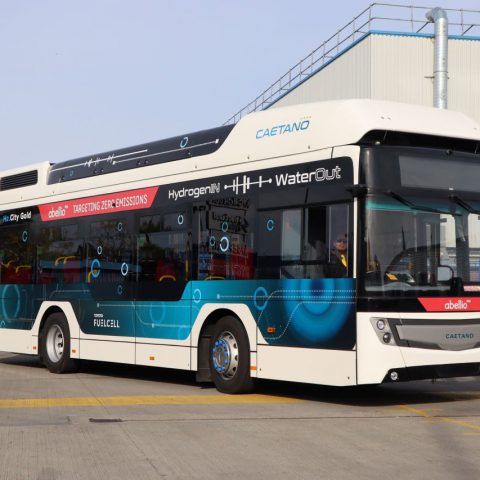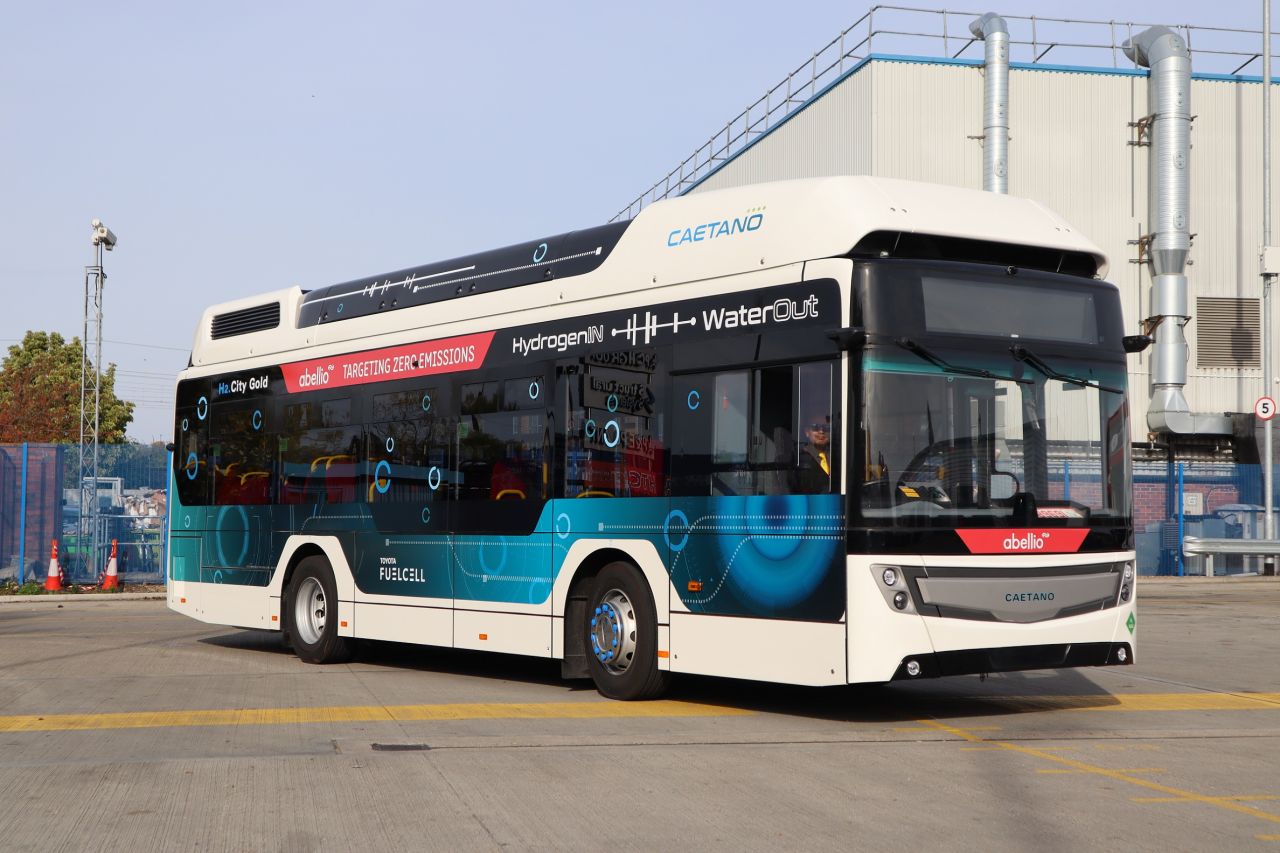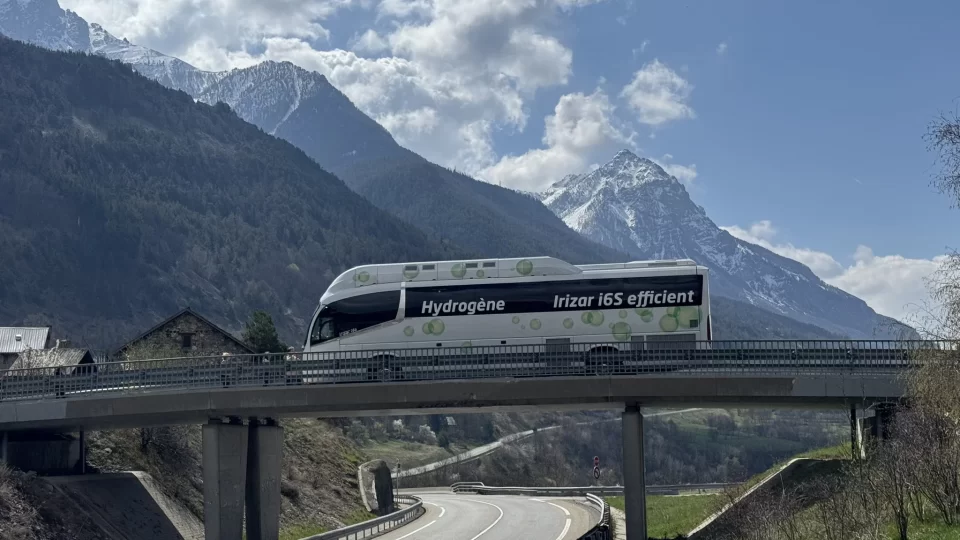An hydrogen bus pilot is being carried out in London. Abellio is testing the Caetano H2.City Gold
An hydrogen bus pilot is being carried out in London. The operator Abellio London is holding a pilot with a right-hand drive (and 10.7-meter) version of the Caetano H2.City Gold. After all, the same operator has purchased as many as 34 battery-electric buses from the Portuguese producer. The news regarding the hydrogen bus one-week pilot […]

An hydrogen bus pilot is being carried out in London. The operator Abellio London is holding a pilot with a right-hand drive (and 10.7-meter) version of the Caetano H2.City Gold. After all, the same operator has purchased as many as 34 battery-electric buses from the Portuguese producer. The news regarding the hydrogen bus one-week pilot is reported on Routeone magazine.
Abellio UK Bus Engineering Director Jon Eardley is quoted as saying that “There are still a lot of unknowns with hydrogen power. We are not going to learn everything about it within a week. But what we do learn will help to set the scene for the future for us”.

Caetano fuel cell bus, a pilot in London
The fuel cell bus by Caetano has been ordered in eight units in Barcelona. Also, a few units are headed to Germany, in Niebüll and Bielefeld. Unveiled at Busworld 2019, the CaetanoBus H2.City Gold is available in 10.7 or 12 meter version, LHD and RHD variants. Hydrogen tanks and the fuel cell stack are stored on the vehicle’s roof, to optimize the interior space.
Thanks to the fast refuelling time, of less than 9 minutes, and the high autonomy of the vehicle, city operations are not compromised. H2.City Gold has a range of 400 km on a single refill. A 60 kW Toyota fuel cell is used in this vehicle, which also stands out for its electric motor with a rated power of 180 kW, supplied by Siemens. Axles are by ZF. A small LTO battery is also carried on the bus.
The vehicle is equipped with hydrogen leakage sensors in the fuel cell and hydrogen tanks and crash sensors so that in the event of a leak or accident they cut the hydrogen flow out of the tanks. By using a colour-changing tape it is possible to carry out visual checks for possible leaks, the company points out. Like the 100% electric bus, this model can also be fitted with a wide range of other safety features. The first vehicles are being delivered in 2020.







